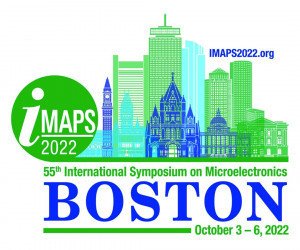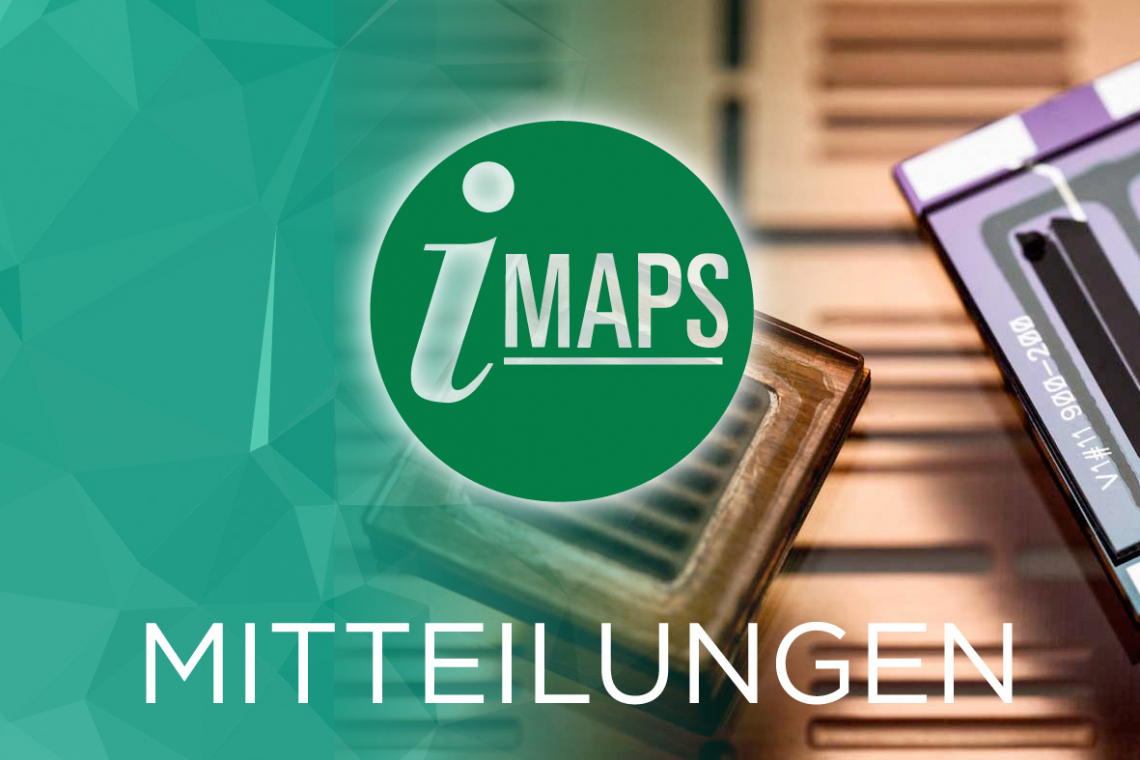55th International Symposium on Microelectronics
A critical review
Boston, Massachusetts, had a lot to offer those with a passion for microsystems technology in September and October. Immediately after the BIOMEDDevice conference and exhibition on September 28 and 29, 2022, the elite from research, development, production and application met from October 3 to 6, 2022 for the 55th International Symposium on Microelectronics.
 In eleven Professional Development Courses, leading representatives from renowned companies provided a comprehensive insight into the future of packaging technology for 6G, high-performance computing, automotive, industrial, military, space and medical applications. In addition to chip scale packaging, flip chip and wafer level packaging production methods, the focus was also on wire bonding, which is often underestimated, as well as the growing demands on reliability, robustness and thermal management.
In eleven Professional Development Courses, leading representatives from renowned companies provided a comprehensive insight into the future of packaging technology for 6G, high-performance computing, automotive, industrial, military, space and medical applications. In addition to chip scale packaging, flip chip and wafer level packaging production methods, the focus was also on wire bonding, which is often underestimated, as well as the growing demands on reliability, robustness and thermal management.
A one-day workshop with the promising title "Strategies to Revitalize the On-Shore Packaging and Assembly Industrial Base" was included in the programme for the first time. As in Europe, this workshop dealt with the planned approach of the United States of America to build up redundant resources to the previously used supply sources, to create manufacturing capacities and jobs at home, to ensure the availability of semiconductors and to strengthen its own domestic economy.
The US government is providing 52 billion dollars for this purpose alone via the American Chips Act (see also Fact Sheet: Biden-Harris Administration bringing semiconductor manufacturing back to America) in order to promote private sector investment. The aim here is to increase the share of global chip production, which has fallen from 37% to 12% over a period of 30 years.
In addition, the American economy is investing around 80 billion dollars in expanding its production capacities. This is essentially split between
- 20 billion for a new Intel semiconductor production facility in Columbus, Ohio
- USD 17 billion for a new Samsung semiconductor production facility in Texas
- USD 1 billion for production expansions at Cree in North Carolina
- Various capacity expansion measures at Micron, TI, GloFo and SK.
But what does the US initiative mean for us in Europe? What activities do we have to counter the American initiatives? How can we strengthen our own economy and competitiveness without losing sight of the idea of cooperation?
In the EU Commission's 2019-2025 strategy paper, it was decided to set up a European chip law to increase Europe's competitiveness and resilience in terms of semiconductor technologies and applications and thus contribute to the digital and ecological transition. At the same time, Europe's technological leadership in this area is to be further expanded. With the European Chip Act, the EU wants to tackle the shortage of semiconductors and strengthen Europe's technological leadership. It mobilizes EUR 43 billion in public and private investment and includes measures to better respond and counteract future supply chain disruptions together with Member States and international partners.
The specific objectives are to:
- Investing in next generation technologies
- Providing access to design tools and pilot facilities to prototype, test and trial cutting-edge chips
- Certification for energy-efficient and trustworthy chips to ensure quality and safety for critical applications
- A more investment-friendly framework for setting up manufacturing facilities in Europe
- Supporting innovative start-ups, scale-ups and SMEs in accessing equity financing
- Promoting skills, talent and innovation in microelectronics
- Instruments for the early detection of semiconductor bottlenecks and crises and appropriate countermeasures to ensure security of supply
- Establishing international semiconductor partnerships with like-minded countries.
Both the US and European activities to build up additional capacity to meet the growing demand for semiconductors and to make us less dependent on East Asian suppliers is the right approach. Although monopolization and concentration generally lead to favourable conditions, they also result in a high level of dependency. Diversification seems to be the order of the day. But what does this mean for the current situation in which iMAPS members from industry and commerce find themselves? To put it bluntly - in the short term, they will continue to face
- Long delivery times
- discontinuation of unprofitable components
- Allocations
- Interrupted supply chains
interrupted supply chains. The planned production facilities are still under construction, work on plant equipment will not begin until early 2024 at the earliest, and 'readiness for production' is expected at the end of 2025. Only then will the situation on the semiconductor market ease. This is not the opinion of the author; these are reliable figures that have been confirmed and communicated by leading semiconductor production equipment suppliers.
In short, there is light at the end of the tunnel. But the road ahead remains rocky.
Calendar of events
|
Place |
Period |
Event name |
Organizer |
|
Munich |
October 20-21, 2022 |
Fall Conference |
IMAPS D |
|
Munich, Germany |
November 15-18, 2022 |
SEMICON EUROPE |
SEMI Europe |
|
Tours |
November 24, 2022 |
Power electronics and packaging workshop |
IMAPS France |
This calendar is subject to change. Please refer to the information and notes of the organizers on the respective websites!
IMAPS Germany - Your association for packaging and packaging technology
IMAPS Germany, part of the 'International Microelectronics and Packaging Society' (IMAPS), has been the forum in Germany for all those involved in microelectronics and packaging technology since 1973. With almost 300 members, we essentially pursue three important goals:
- we connect science and practice
- we ensure the exchange of information among our members and
- we represent the point of view of our members in international committees.
Imprint
IMAPS Germany e. V.
Kleingrötzing 1, D-84494 Neumarkt-St. Veit
1st Chairman: Prof. Dr.-Ing. Martin Schneider-Ramelow, Director of the Fraunhofer Institute for Reliability and Microintegration (IZM),
Treasurer
(for questions about membership and contributions):
Ernst G. M. Eggelaar,
You can find detailed contact information for the members of the Executive Board at www.imaps.de
(Executive Board)





